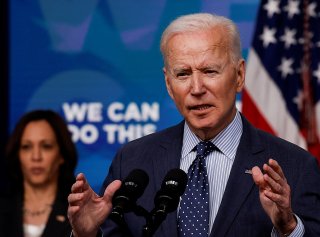After Three Stimulus Checks, Is the American Recovery Over?
Two stimulus measures signed into law by President Donald Trump provided for checks of $1200 and $600; Biden’s stimulus measure calls for $1400 to all Americans making below $75,000 per year, as well as their dependents.
Here's What You Need to Remember: Slowly but surely, the pandemic is coming to an end; many state lockdowns have already ended, with California’s, the largest state in the Union, having been lifted on June 15. As more Americans return to work, more money changes hands, decreasing the need for further stimulus to the economy and the urgency of distributing massive aid programs.
So far, the IRS has issued roughly 167 million stimulus payments from the third round of checks, originally passed in March 2021. Another 1.8 million went on to receive the checks within the past weeks; altogether, roughly 90 percent of eligible adults have received a stimulus check, and the number has increased as the IRS processes more tax returns from the May 17 filing deadline and updates their mailing addresses accordingly. Millions of families have also received “plus-up” checks, adding extra money to a previously received stimulus payment.
The current round of stimulus checks marks the third, and single largest, payment since the onset of the pandemic. Two stimulus measures signed into law by President Donald Trump provided for checks of $1200 and $600; Biden’s stimulus measure calls for $1400 to all Americans making below $75,000 per year, as well as their dependents.
This stimulus measure was part of an omnibus bill which also included a number of other stimulus-related measures, including aid for homeowners and a near-doubling of the Child Tax Credit. These payments were designed to target the most needy Americans, rather than throw money to the wind – a policy which the stimulus checks have been accused, fairly or otherwise, of doing.
However, three stimulus checks have not been enough for everyone. Roughly 80 Congressional Democrats – more than 60 Representatives and 20 Senators – have come out in support of a fourth stimulus measure. This loose caucus has advanced a number of separate arguments in favor of such a measure in several letters to the president; the most common proposal has been for a recurring $2000 per month check to all adults, with an additional $1000 per month per dependent.
However, House Republicans have been fiercely opposed, especially to open-ended checks that could continue to months. And Biden has remained cagey on the idea of a fourth stimulus; while he has never outwardly opposed one, he has studiously avoided supporting one, either.
At the current rate, the issue of a fourth check will soon be moot. Slowly but surely, the pandemic is coming to an end; many state lockdowns have already ended, with California’s, the largest state in the Union, having been lifted on June 15. As more Americans return to work, more money changes hands, decreasing the need for further stimulus to the economy and the urgency of distributing massive aid programs.
Trevor Filseth is a current and foreign affairs writer for the National Interest. This article first appeared earlier this year.
Image: Reuters.

